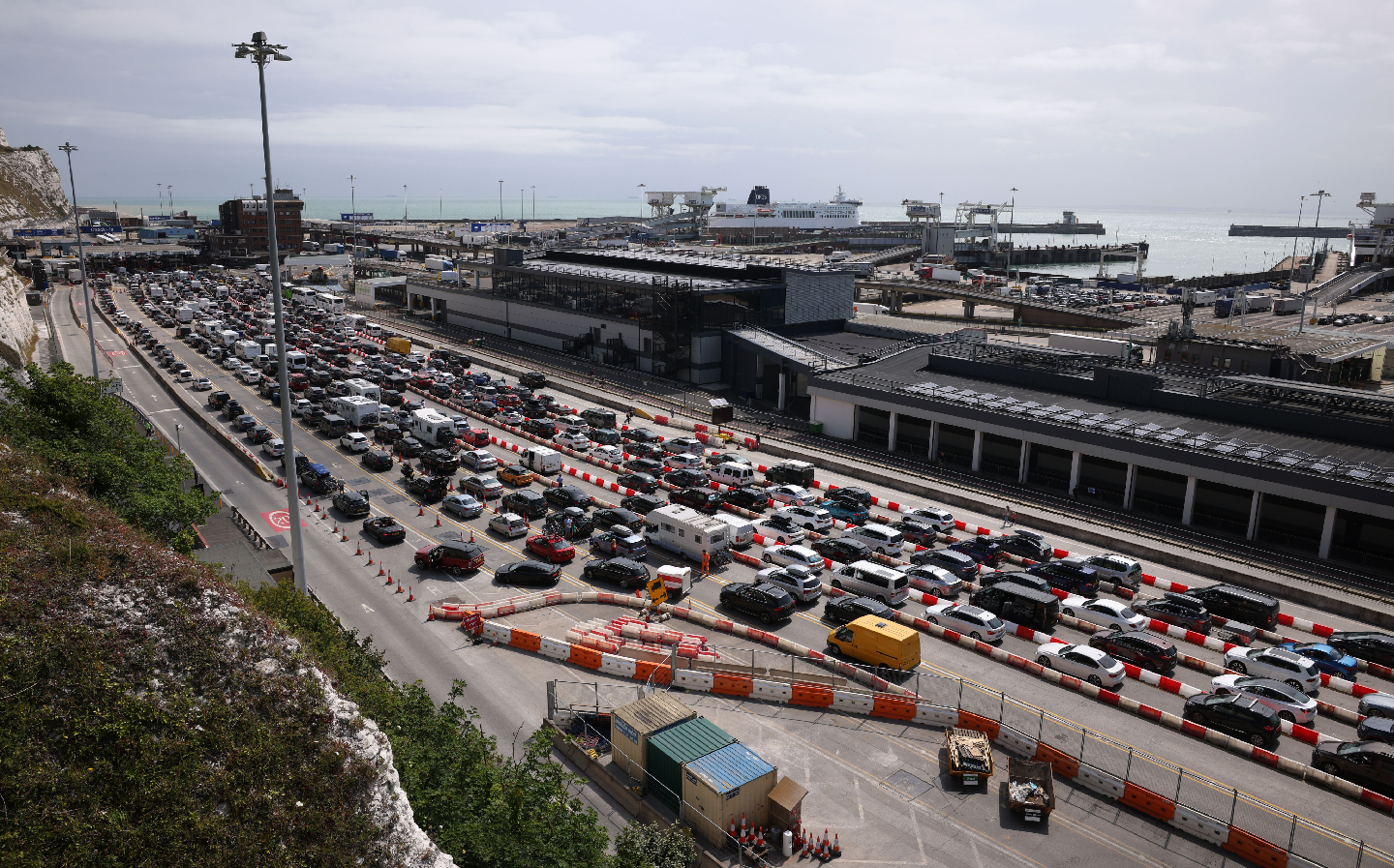Channel crossing chaos: What caused queues at Dover and Folkestone and are we in for more delays?
There’ll be tailbacks at the border of the white cliffs of Dover...
Though traffic queues at the cross-Channel ports of Dover and Folkestone have returned to normal levels following a weekend which saw massive delays, with families forced to wait in cars at the borders for up to 21 hours, motoring groups have warned that issues may return throughout the summer.
The delays have been due to a “perfect storm” of factors at ferry ports and the entrance to the Channel tunnel, according to experts, with the French identifying Brexit as the cause while the UK government blamed France for not employing enough border officials.
Despite “business as usual” at the ports and “minimal queuing on the approach roads” today (Tuesday), the AA has warned that the chaos seen at the weekend may return.
“We expect this to continue until Friday, where we are concerned we might see a repeat of the congestion experienced this weekend,” said the organisation’s head of roads policy, Jack Cousens.
“We could be in for a repeat of this congestion across the summer” unless measures were rapidly taken to address the underlying issues, he added.
Where were the cross-channel traffic queues?
The main approach road to both the Channel Tunnel and Dover is the M20/A20, and this is the road which saw the worst of the gridlock and likely will again.
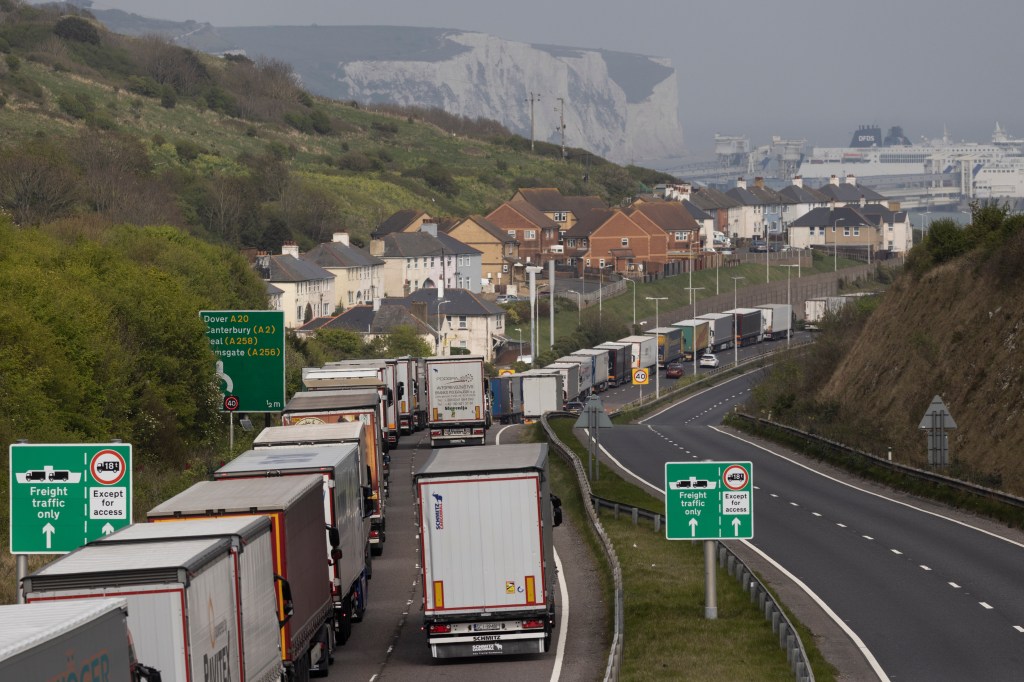
Compounding the issue was the fact that a 24-mile section of the road was closed between Junctions 8 and 11 as part of Operation Brock, a plan that initiates a contra-flow system on the M20 coastbound during times of major disruption or particularly high traffic volumes. It essentially turns a stretch of road into a lorry park for 3,500 or more trucks.
This plan seeks to divert non-freight traffic onto smaller roads such as the A249, M2, A2 and A256, all of which also struggled to cope with the increased traffic volume.
What caused the disruption?
High traffic volumes
Several factors conspired to create the delays seen over the weekend, chief among which was sheer volume as tens of thousands of holidaymakers took to ferries and Eurotunnel services at the start of the school holidays, making it the busiest travel weekend since before the Covid-19 pandemic.
The Port of Dover said it had processed as many as 142,000 travellers over the entire weekend.
Lengthier checks following Brexit
Despite the government’s insistence that the chief causes of the delays were a “serious accident” on the M20 (a lorry crash blocked the road for three hours on Friday), “a shortage of French border control staff”, and not Brexit, new border arrangements have played a significant part in the exacerbating the situation.
Port bosses said that checks carried out by French officials on British soil had almost trebled processing times for each car compared with pre-Brexit times, with waits of up to two minutes per car. With 142,000 travellers at Dover alone, that means 284,000 minutes of processing over the weekend, or 4,733 man hours.
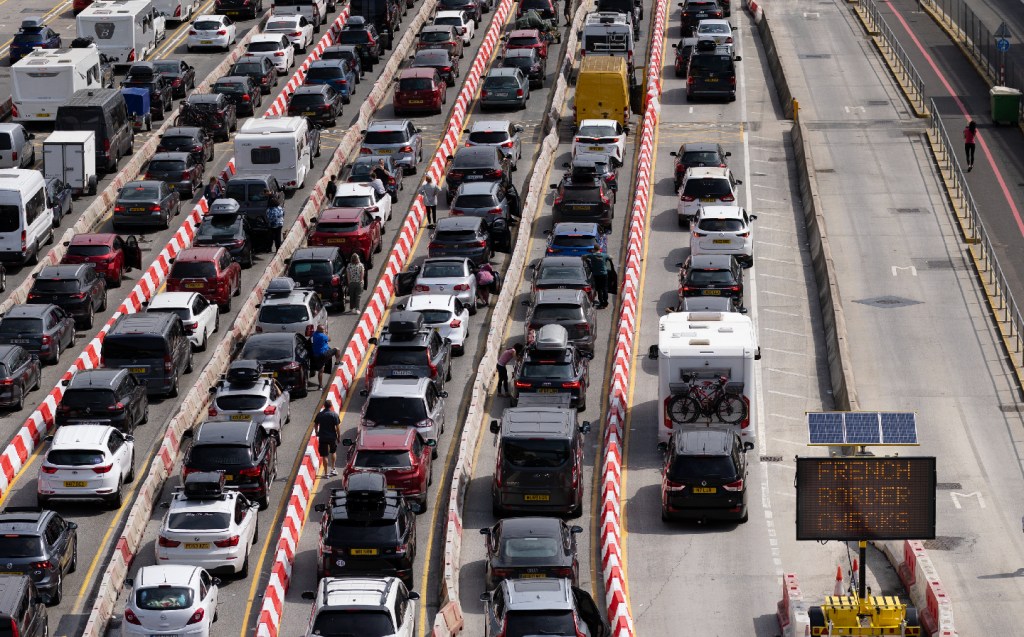
Mark Simmonds of the British Ports Association said that more stringent border checks were a “reality of life” after Brexit and the creation of an external border with France. “There are going to be queues now because it takes longer to get through,” he said.
Not enough border guards
However, just six out of twelve booths for passport checks (which are conducted by French officials) were open at Dover on Friday. Both Tory leadership hopefuls, Rishi Sunak and Liz Truss, accused France of instigating the chaos by not supplying enough officials. The French transport minister Clément Beaune responded in a tweet, saying: “France is not responsible for Brexit.”
French politicians also pointed out that UK ministers recently rejected a proposal to double the number of passport booths in Dover. However, following negotiations at the weekend, the French agreed to supply a full complement of border guards.
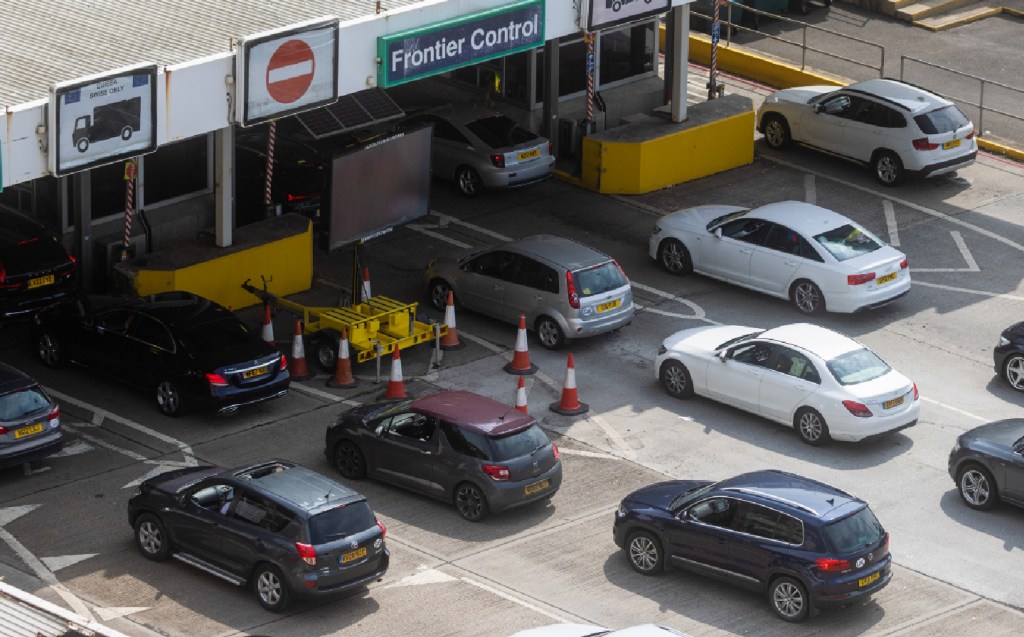
This summer represents the first time that normal passenger numbers have been recorded since the end of the Brexit transition period in January 2021, which heralded a host of new regulations for travellers between France and the UK.
Were any other ports affected?
Other Channel ports such as Portsmouth, Poole and Plymouth did not report any major disruption, with delays primarily confined to the UK’s busiest cross-Channel ports, Dover and Folkestone.
Were there delays in France?
Traffic volumes were heavy at French ports such as Calais, with delays of three to four hours, though they were not as badly affected as those in the UK.
Are there still delays at Dover and Folkestone?
Traffic queues have returned to normal today (July 26) but as it’s still the height of summer and the busiest season for travel, ferry operators DFDS and P&O advise passengers to arrive two hours before departure to ensure they clear passport control.
During the weekend, ferry companies advised passengers to arrive five hours early.
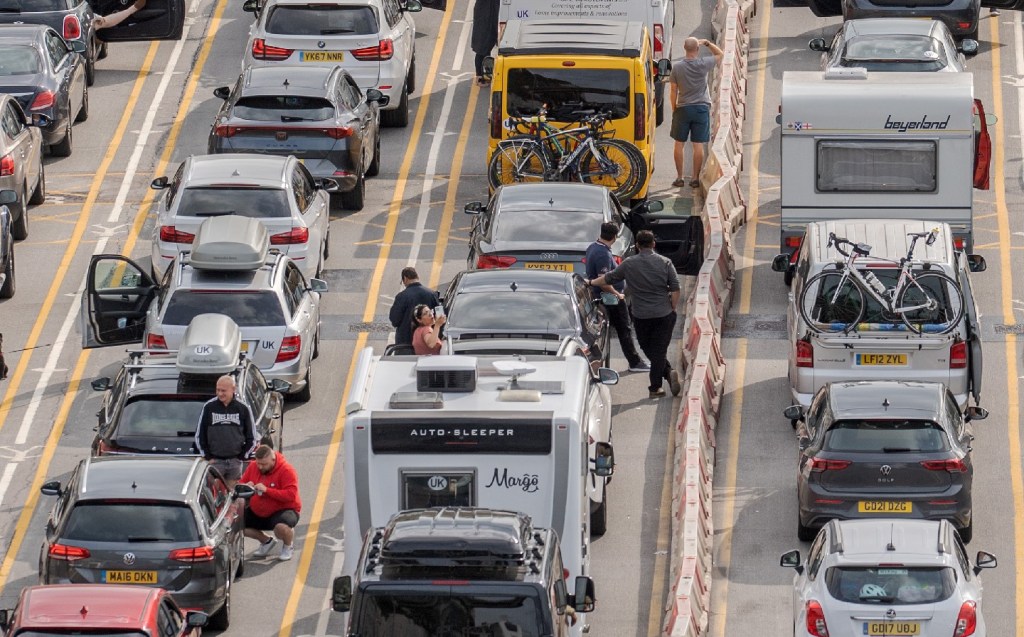
Eurotunnel services reported delays yesterday (Monday) of more than 90 minutes.
Queues are expected to increase again towards the weekend, so travellers are advised to keep an eye on news broadcasts and their ferry operator’s website.
What happens if I miss a ferry?
Most of the major operators on the cross-Channel route, including P&O, DFDS and Eurotunnel, have said that they will accommodate passengers who have missed crossings due to the traffic on the next available sailing after they check-in.
What do I do if I’m stuck in traffic?
The RAC recommends filling up with fuel before you leave so there’s no chance you’ll run out if you’re stuck in traffic for longer than expected.
Turn off your engine as soon as possible, though in particularly hot weather you may need to leave it on to run the air-conditioning to avoid passengers becoming overheated.
It’s worth bringing snacks and it is essential to stay hydrated, though this can obviously pose its own problems. Avoiding caffeine can help as this can reduce your urge to use the restroom, and water should be sipped rather than gulped for the same reason.
In longer tailbacks, needing the toilet may be unavoidable, so unglamorous though it may be, it’s worth carrying a few empty bottles or portable urinals to use discreetly in emergencies. Hand-sanitiser and wipes are useful in this situation, of course.
Related articles
- After reading about the recent travel chaos, you might be wondering do EV batteries drain in traffic?
- Driving in Europe post-Brexit: here are the rules
- Traffic costs the UK economy £7bn per year, according to research
Latest articles
- Seven great automotive events to visit this summer, from F1 to art and champagne
- Watch new Porsche 911 GT3 smash Nürburgring record for manual cars
- Skoda Elroq 2025 review: Czech carmaker can’t seem to miss with its electric family cars
- Five best electric cars to buy in 2025
- Should I buy a diesel car in 2025?
- F1 2025 calendar and race reports: The new Formula One season as it happens
- Zeekr 7X AWD 2025 review: A fast, spacious and high tech premium SUV — but someone call the chassis chief
- Denza Z9GT 2025 review: Flawed but sleek 1,062bhp shooting brake from BYD’s luxury arm
- Extended test: 2024 Renault Scenic E-Tech review


